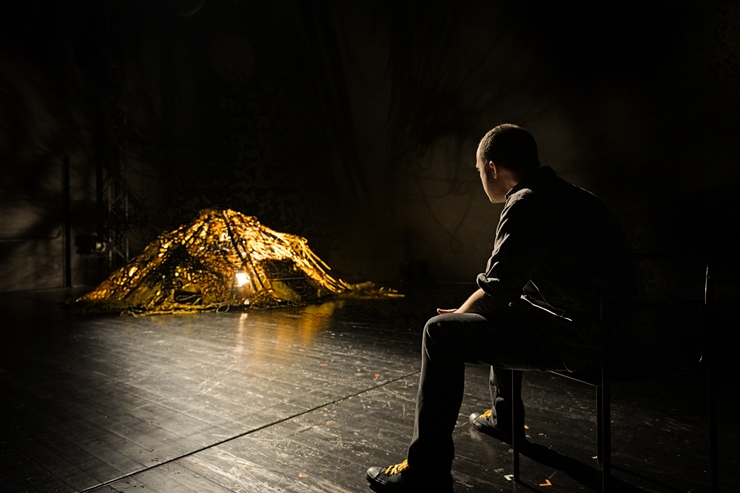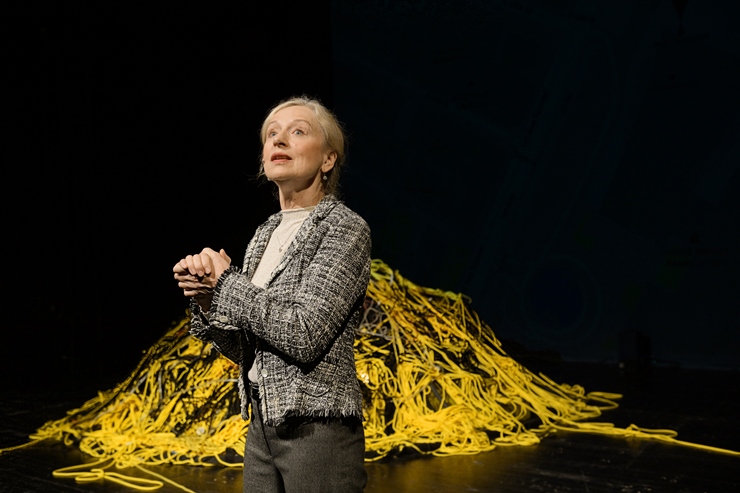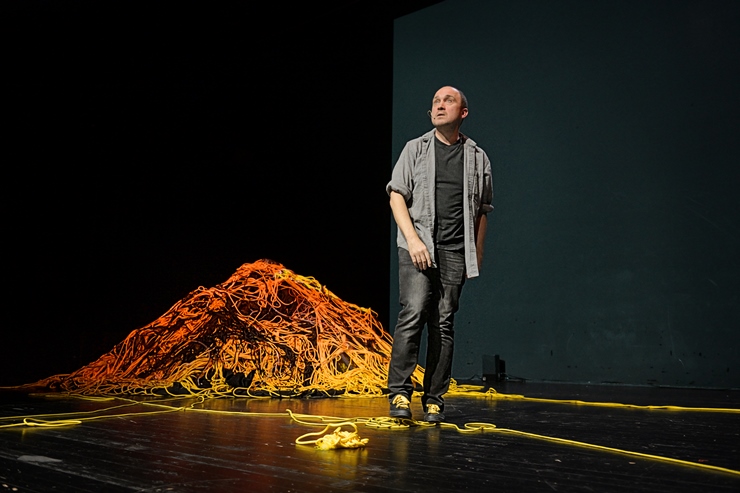With the aim of bringing the discussion of nuclear weapons to the table, A Family Business is definitely out to make people think. While stating that this is not aimed at being an academic lecture, creator and presenter Chris Thorpe tells us in the Q&A after the show that all of the content is factually accurate and encourages everyone to check the facts for themselves.
This is a challenging piece of theatre and one that asks us to focus on something we don’t really want to focus on: that there are 12,500 active nuclear weapons in the world, even one of which would cause irreparable damage to human life not to mention the whole planet. Asking people to spend time dwelling on death, while obviously necessary, is a big ask at a time when we’ve just come out of a global pandemic. Although maybe it’s part of a potential zeitgeist with the film Oppenheimer being so well received and currently winning awards.

This piece focuses on The Treaty on the Prohibition of Nuclear Weapons and its difficult journey to becoming international law. A Family Business is partly a play and partly an incredibly creative lecture, with three performers playing different roles in scenes held together by Chris. The show is truly fascinating: turning a topic that’s so depressing and toxic into something stimulating and thought provoking is a remarkable achievement.
A screen gives the audience subtitles of everything going on which is not just an affectation but helpful when one performer speaks in German. There are masses of facts and figures presented at an alarming rate, so much so it might have been helpful to have a factsheet at the end. The audience is welcomed into the show throughout, through instant quizzes. Chris warms to the audience, as if we are all in a coffee shop with him having a chat.

The staging is inventive with an inverted dome of cords hanging over the stage, like the threads of the story being told, ending with all the connections being tied together. The final visual of dual and opposite symbols of connection and destruction is incredibly clever as well as shocking. And the point is well made: the people making these decisions seem so far away, yet they are ordinary people with lives and likes, agendas and the ability to make mistakes. For instance, we learn that the ratification into international law of a treaty which could save the planet from nuclear disaster nearly didn’t happen because an office ran out of printer paper…
Thinking about nuclear catastrophe was very prevalent in 80s mainstream media: a series on Oppenheimer, the film When The Wind Blows, and the TV show Threads were all widely watched and discussed. While the discussion has gone away, the number of active nuclear weapons has increased, not decreased. Chris Thorpe is keen not to preach activism per se, his core message is “let’s talk about this” to get this back into current social consciousness so that politicians realise this is something that is important to their electorate.
Brighton Dome Corn Exchange, Friday 16th Feburary 2024
Photos by Andreas J Etter

